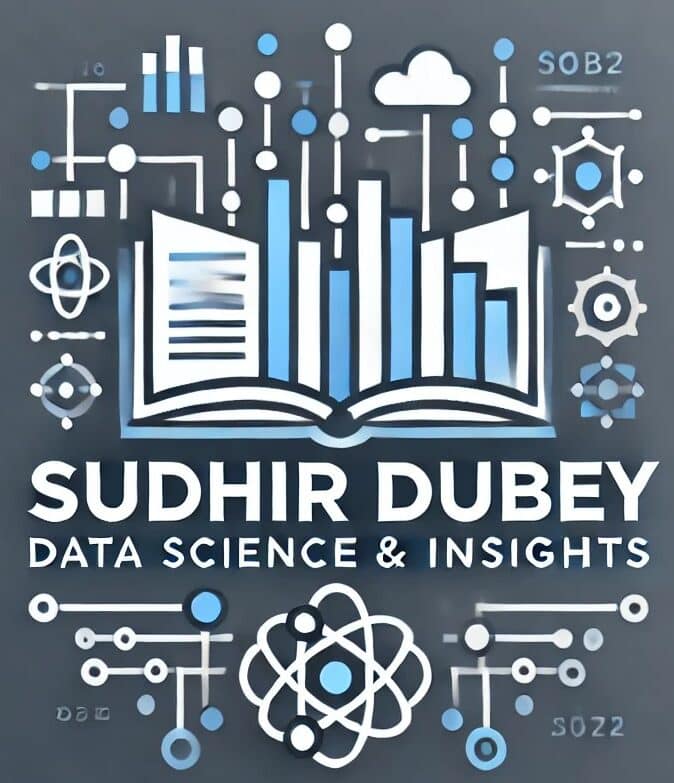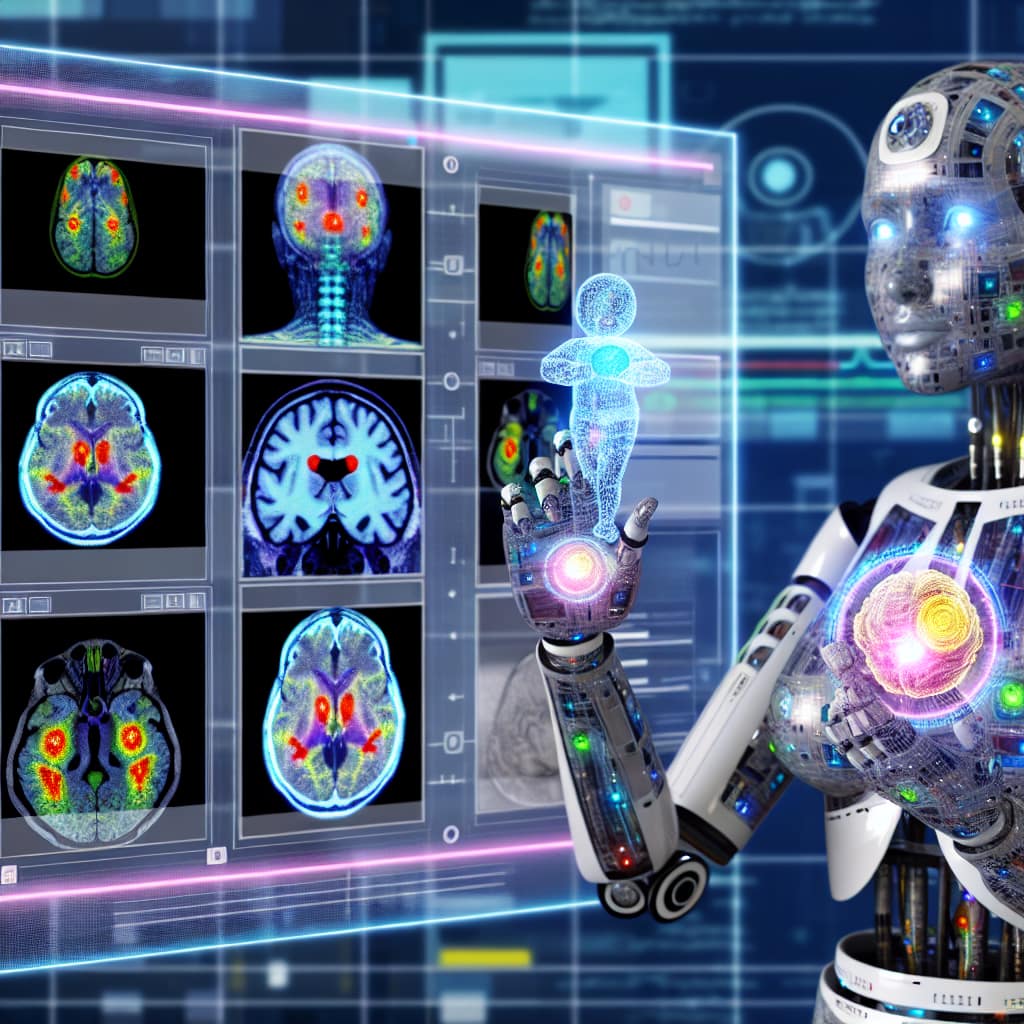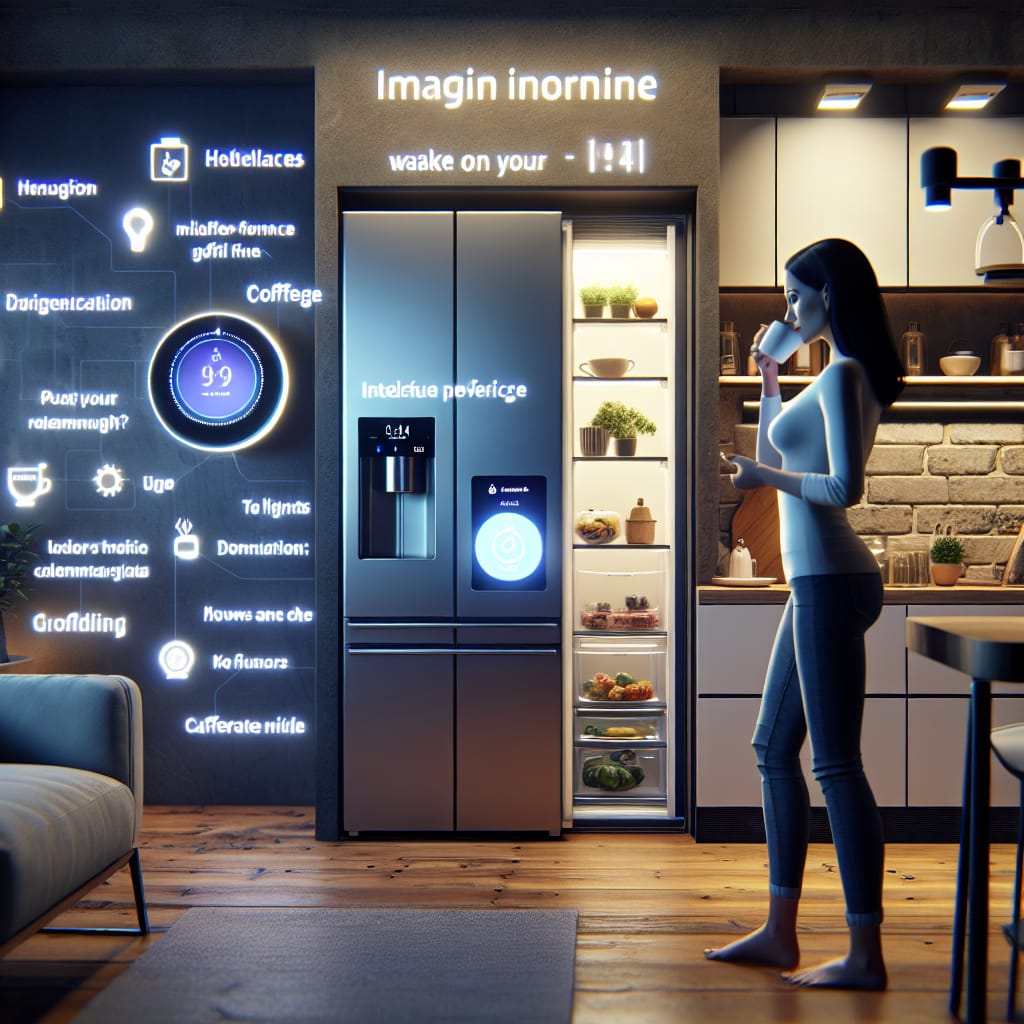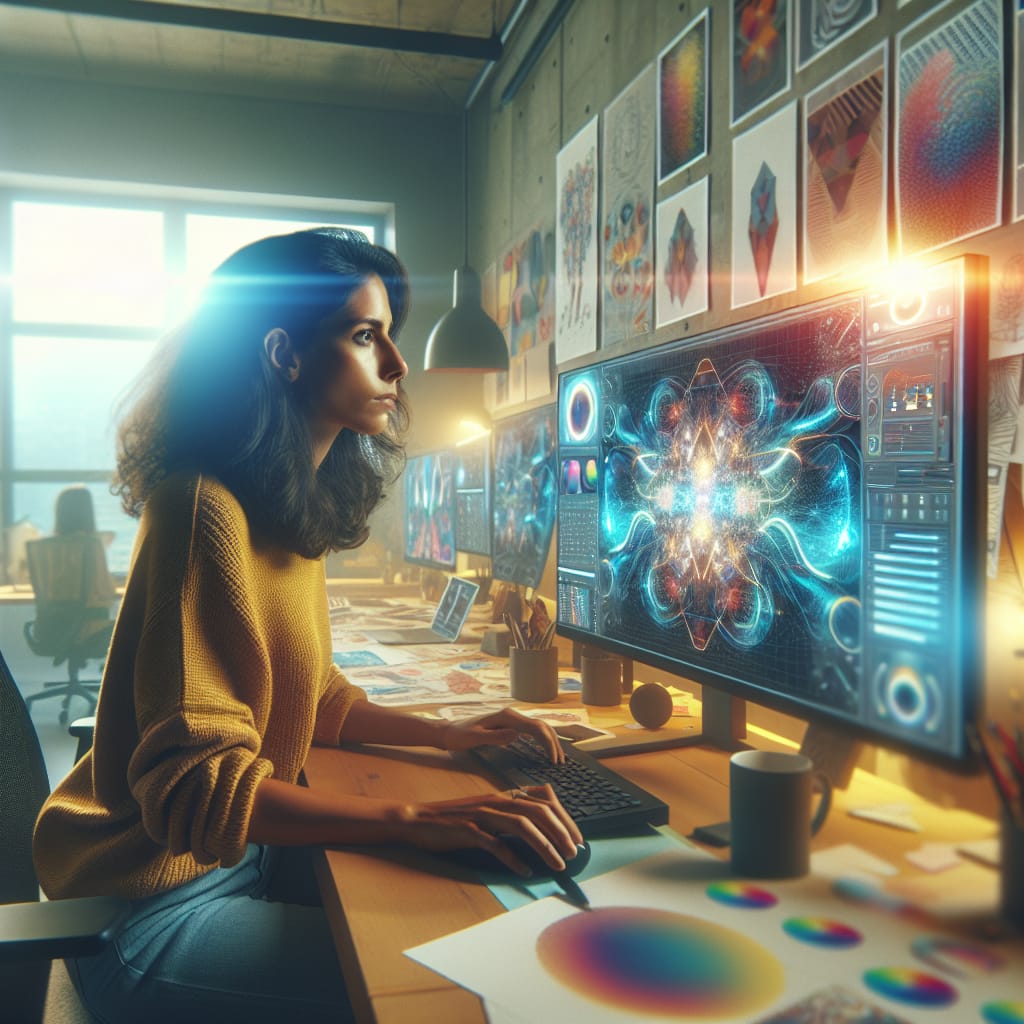AI in Healthcare: 7 Advanced Ways AI Transforms Medical Diagnostics in 2025
In 2025, AI in healthcare has evolved beyond expectation, revolutionizing medical diagnostics with unparalleled precision and efficiency. As healthcare systems worldwide grapple with mounting data and diagnostic demands, AI emerges as the linchpin that seamlessly integrates cutting-edge technology with patient care. This article delves into seven advanced applications of AI in healthcare, exploring how sophisticated algorithms enhance diagnostic accuracy and streamline processes. From predictive analytics to personalized medicine, AI stands at the forefront of a transformative era in medical diagnostics. This exploration will offer AI professionals, enthusiasts, and learners deeper insights into the HealthTech landscape, underscoring AI’s crucial role in shaping the future of diagnostics.
Table of Contents
Predictive Analytics in Diagnostics
Predictive analytics uses advanced AI algorithms to anticipate health issues even before they manifest. By analyzing patterns from large datasets, AI can identify potential health risks, allowing medical professionals to intervene earlier. Hospitals have reported significant reductions in readmissions thanks to AI-driven predictive models that provide actionable insights.
The Role of Big Data
Big data fuels predictive analytics by offering predictive insights from patient history, lifestyle, and genetic information. AI processes these data to identify risks, leading to proactive healthcare solutions.
Case Study: Cleveland Clinic
At Cleveland Clinic, predictive analytics is crucial in early detection of heart conditions, improving patient outcomes and optimizing resource allocation.
AI-Driven Medical Imaging
AI enhances medical imaging by providing deep analysis that outpaces human capabilities. Algorithms detect anomalies in radiographs and MRIs with profound accuracy, aiding in early diagnosis of conditions like cancer.
Image Recognition Algorithms
State-of-the-art image recognition algorithms can process and analyze thousands of images quickly, highlighting subtle changes that might elude human eyes.
Real-World Example: Aidoc
Aidoc utilizes AI for analyzing medical scans, reducing diagnosis time and ensuring no critical detail is missed. This has sped up emergency department workflows, leading to improved patient care.
Personalized Medicine
AI customizes treatment plans by analyzing genetic data and medical history, offering personalized healthcare solutions that optimize treatment efficacy and minimize side effects.
AI-Enabled Treatment Plans
Personalized medicine empowers doctors to design targeted therapies based on AI insights, improving treatment outcomes significantly.
Remote Patient Monitoring
Remote monitoring devices, powered by AI, track vital signs and patient metrics in real-time, alerting healthcare providers of abnormal changes instantaneously.
IoT and Wearable Devices
The Internet of Things (IoT) combined with wearable technology enables continuous health monitoring, facilitating early intervention for chronic conditions.
Case Study: Apple Watch
The Apple Watch has transformed patient monitoring by providing ECG recordings that help predict heart events, demonstrating AI’s everyday impact in healthcare.
Virtual Health Assistants
AI-driven virtual assistants engage patients with inquiries, manage routine tasks, and provide informative responses, reducing the administrative burden on healthcare providers.
Natural Language Processing
Using NLP, virtual assistants offer seamless interaction, enhancing patient engagement and satisfaction significantly.
Genomics and AI
AI accelerates genomic research, facilitating the understanding of complex genetic disorders and the development of novel therapeutic approaches.
AI Tools in Genomics
Tools like DeepVariant, developed by Google, have revolutionized genomics by accurately calling variants from sequencing data, leading to faster and more effective research outcomes.
AI in Drug Discovery
AI shortens drug discovery timelines by predicting molecular structures’ potential efficacy, significantly reducing costs and accelerating the arrival of new medicines on the market.
Machine Learning Models
Machine learning models evaluate massive datasets of chemical compounds, identifying promising candidates that conventional methods might overlook.
Example: Drug Development Partnering
Companies like Insilico Medicine partner with pharmaceutical giants to deploy AI in discovering innovative drugs faster than traditional timelines allow.
Conclusion
AI in healthcare represents a paradigm shift in medical diagnostics. From predictive analytics to personalized medicine, AI facilitates precision, speed, and efficiency at unprecedented levels. Entering an era where smart diagnostics redefine healthcare delivery, AI professionals must stay informed about these dynamic advances. To remain updated on the latest trends in AI and Data Science, consider subscribing here or explore in-depth content in our AI, GenAI, and Data Science blogs.



